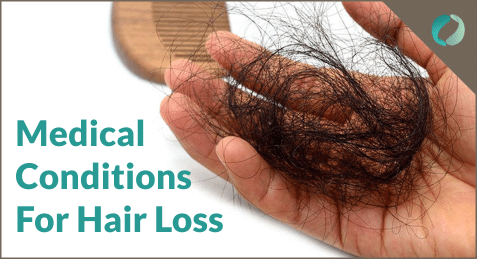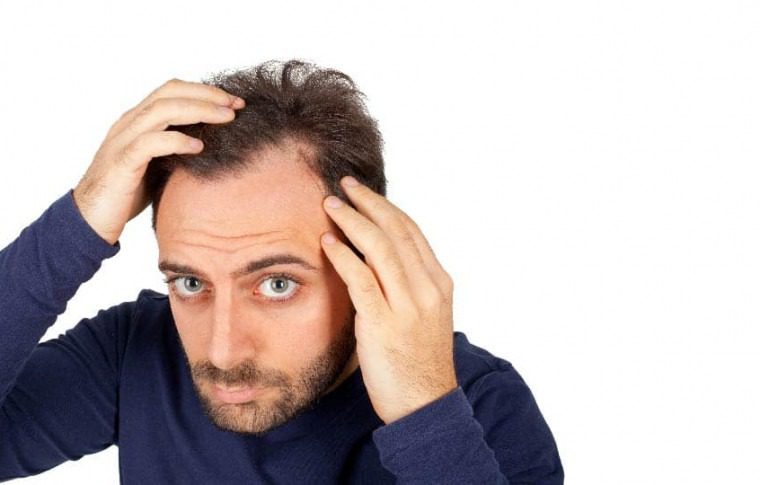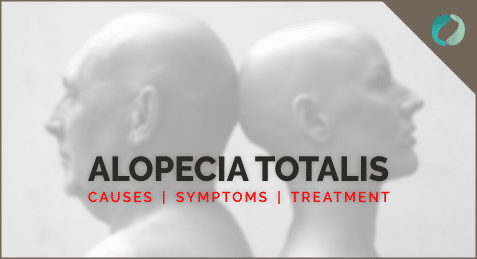Medical Reasons For Hair Loss
If only one could imbibe Bruce Willis’ positive attitude when he said, “Hair loss is God’s way of telling me I’m human”, people would not be alarmed by the rapid rate at which some of them lose their hair. Hair loss is a common condition in most people and there can be several medical reasons for Hair Loss. In eighty percent of the cases, hereditary hair loss or baldness is the known cause. Apart from that, over-use of chemicals for styling, an improper diet, hormonal changes in the body, and underlying diseases play a role in causing one to lose their hair. Causes of Hair Fall Some of the top reasons for hair loss are:
- Heredity / Genetic
- Aging
- Hormonal imbalance in the body
- Stress
5.Protein deficiency (mainly caused by chronic illnesses)
- Hypothyroidism / Hyperthyroidism
- Cancer treatments- chemotherapy and radiation
- Polycystic ovarian syndrome (PCOS in women) & PCOD
- Hair-pulling disorders / Trichotillomania
- Overuse of hair procedures or styling products
- Use of antidepressants
In some of these cases, like over-styling or heredity, hair loss may not be as alarming. However, diseases like cancer or lupus are medical conditions that cause sudden and rapid hair loss Medical Reasons for Hair Loss Although hair loss is natural as we grow older, there are various medical conditions and illnesses that can also cause abnormal or rapid loss of hair. Thyroid, anemia, depression, extreme stress, diabetes, lupus, and cancer are some of them. Another disorder that causes acute hair loss is the auto-immune destruction of hair follicles in certain areas of the skin, known as alopecia areata, which mainly affects the scalp. It can develop at a very young age, but it doesn’t occur in people before they are 3 years old. In extreme cases, alopecia areata can lead to loss of hair all over the body. It is characterized by chunks of hair falling out, resulting in hairless patches on the scalp. Other hair-loss-inducing diseases include” Cancer Hair Loss Cancer, as we all know leads to rapid loss of hair. It isn’t the disease, but the treatment in the form of chemotherapy and radiation that leads to hair fall. During chemotherapy, all the healthy cells, along with the infected cancer cells are burnt, and this hampers the natural process of hair growth. So, hair loss is seen not just on the head, but in other areas of the body such as the eyebrow, eyelashes, and armpit as well. Alopecia is also considered to be a side effect of chemotherapy. Radiation on the other hand only affects that area of the body that is exposed to therapy. Depression Severe depression has both mental, emotional, and physical consequences. While on antidepressants, the person affected not only loses a lot of weight but can also lose hair at an alarming rate. Also, negative psychological states such as low self-esteem, a bad mood, pessimism, discouragement, or hopelessness can damage hair growth. Hyperthyroidism And Hypothyroidism Prolonged hypo-or-hyperthyroidism also contributes to hair loss. The change in hair may vary from just thinning to rapid hair fall. Changes in hormones that cause hair loss occur when an enzyme in the body converts testosterone (male hormone) into a less-useful version, known as dihydrotestosterone, or DHT. The latter adversely impacts the hair follicles and retards hair growth. Stress And Hair Loss Stress isn’t good for your tress. Here is an underlying condition, which doesn’t show visible signs of ailment but can have a severe impact on hair growth. It is often seen that people who have recently gone through or are in a difficult phase of their lives end up losing clumps of hair. The common conditions of hair loss due to stress are:
- Telogen Effluvium – A reversible condition during which hair falls out after an experience that is very stressful.
- Alopecia Areata – Spot baldness in some or almost all areas of the body caused by physiological stress.
- Trichotillomania – A repeated urge to pull out their hair until it breaks off.
Lupus Hair Loss Lupus is another medical disease in which the hair becomes brittle and falls out in patches. Lupus is a chronic inflammatory condition and it occurs when the body’s immune system starts attacking its own tissues and organs. Hence, for those who have lupus, hair falls rapidly and can be very alarming. But The Good News is… Hair Regrowth Hair in most cases resumes normal growth after the person is cured from the medical condition, and after the medication for the prescribed condition is completed. It is important, therefore, to maintain and take care of one’s hair during and after the aliment to ensure that your hair doesn’t have to suffer anymore. But the hair loss due to heredity, aging and hormonal imbalances is usually irreversible and can only be prevented to a certain extent. Added this but you can reword if you feel so.





